Search Results
Showing results 41 to 60 of 473
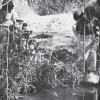
Crawdad Grab
Source Institutions
In this outdoor, freshwater activity, learners explore the behavior and food preferences of crawdads (or crabs) by "fishing" for them with various baits.
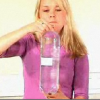
Cartesian Diver
Source Institutions
In this demonstration, learners observe the effects of density and pressure. A "diver" constructed out of a piece of straw and Blu-Tack will bob inside a bottle filled with water.
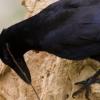
Grabbing a Bite to Eat
Source Institutions
In this activity, learners perform an experiment that replicates the dilemma faced by birds in acquiring food from a confined area.
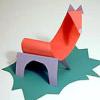
Paper Animals
Source Institutions
This resource contains ideas and brief instructions on how to build animals out of construction paper and other simple materials.
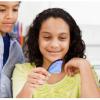
Morphing Butterfly
Source Institutions
In this activity, learners explore how nanosized structures can create brilliant color.
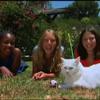
Pet Handedness
Source Institutions
This activity (on page 2 of the PDF under SciGirls Activity: Pet Handedness) is a full inquiry investigation into whether pets show a preference for the left or right paw, or “handedness” like people.
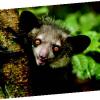
Aye-Aye
Source Institutions
This is an activity about the adaptations that allow the Aye-aye to survive in its habitat. Learners will explore how the Aye-aye collects food and how this is influenced by their specialized finger.
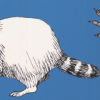
Who Goes There?
Source Institutions
In this outdoor, night activity, learners track nocturnal animals' footprints, droppings and other signs of their presence.
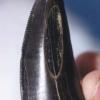
Fossils: Observing, Making and Learning
Source Institutions
In this activity, learners explore how casts of fossilized bones are created and used to learn about dinosaurs. Learners make observations, draw diagrams and share their findings.
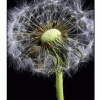
Saldo Island: An Unfair Game
Source Institutions
In this environmental science activity about biodiversity, learners play a game to discover the effects of non-native species on an ecosystem.

Whale Communication Hide and Seek
Source Institutions
In this activity, learners pretend that they are orcas and search for their "pods" using Morse code.
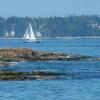
Why Doesn’t the Ocean Freeze?
Source Institutions
In this activity, learners explore how salt water freezes in comparison to fresh water.

Make a Dinosaur Model
Source Institutions
In this activity, learners explore dinosaur skeletons, anatomy, and locomotion. Learners compare and contrast dinosaur skeletons and drawings.
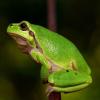
Metamorphosis Matching
Source Institutions
This is an activity where learners will compare the different metamorphosis stages of amphibians.
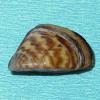
Mussel Your Way Through Photosynthesis
Source Institutions
Using zebra mussels (Dreissena polymorpha), elodea and an indicator dye, learners study the role of light in photosynthesis.
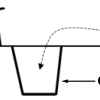
Hunting Minibeasts
Source Institutions
In this activity (p.6-10 of PDF), learners use different methods for hunting minibeasts (bugs). Learners can either make traps or simply look for minibeasts under stones and logs.
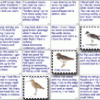
Bird Bingo
Source Institutions
In this activity, learners play bingo to learn about the diversity of birds. This game includes a warm-up lesson and "Full Flight" version.
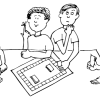
Life in a Nutshell
Source Institutions
In this multi-faceted game (on pages 25-35), learners recreate what happens to creatures in the Brazilian rain forest as they grow from egg to adult—especially those that use fallen, empty Brazil nut
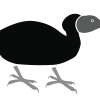
It's All About Birds
Source Institutions
In this activity, learners create their own bird species using arts and crafts materials. The bird call recordings are not online so the introduction activity can't be done, but everything else can.
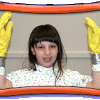
Rubber Blubber Gloves
Source Institutions
In this experiment, learners work in pairs to create two gloves -- one that contains a layer of shortening (blubber) inside, and one that doesn't.
